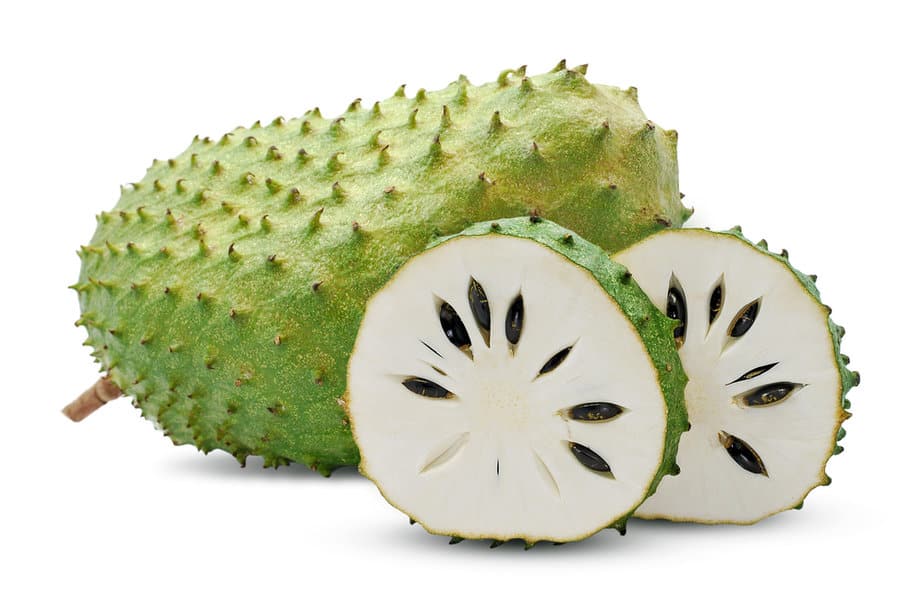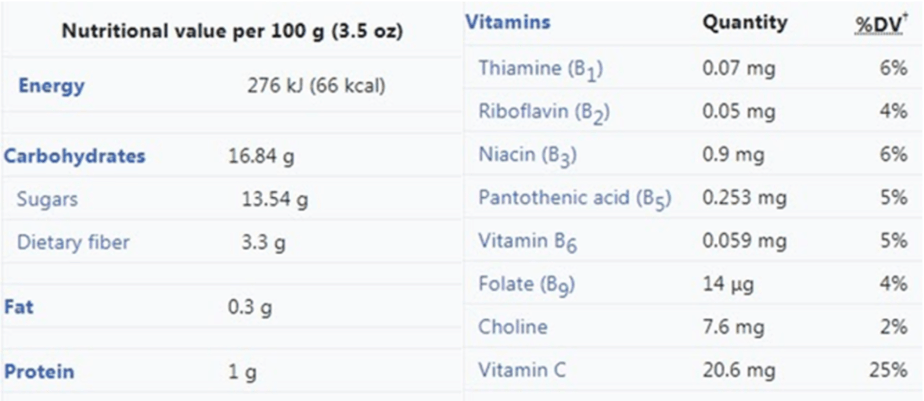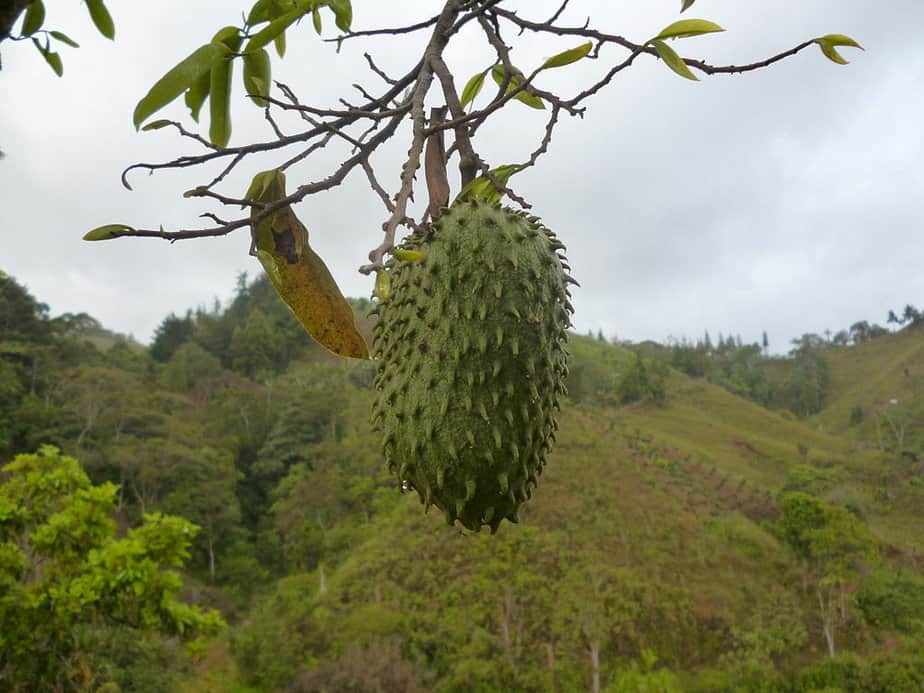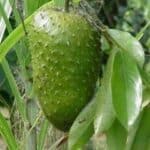7 Facts from our Guanabana Review
- Location: Native to the Caribbean and Central America. It is also widely cultivated in South America, Africa, the west indies, southeast Asia, and the Pacific Islands
- Product: Oval or heart-shaped fruit in the genus Annona, whose members include tropical trees and shrubs
- Scientific Name(s): Annona muricata
- Costs: $50 – $150
- Intended use: Medicinal properties
- Safety warning: This fruit has been associated with neurotoxicity
- Complementary Products: Nebula 30X Whole Genome Sequencing is a reliable DNA Test that decodes all of your genetic blueprints with high accuracy
This review is written with the intent to be as unbiased as possible. However, it represents the opinion of an individual reviewer and is therefore subjective. Furthermore, at Nebula Genomics we seek to educate the public about the benefits of Whole Genome Sequencing. Information about our Whole Genome Sequencing DNA test is therefore incorporated into the review.
March 9, 2023
Table of Contents
Pros and Cons
Pros
- Contains several essential vitamins, minerals, proteins, and carbohydrates
- Contains compounds with antioxidant abilities
- Has anti-inflammatory properties
Cons
- Contains annonacin, a potentially neurotoxic compound
Introduction
What is Guanabana? Guanábana (Annona muricata), also known as Graviola, guyabano, guanabana, and commonly called sugar apple or soursop, is the fruit of a broadleaf, flowering, evergreen guanabana tree (árbol de guanabana).
As can be seen below, it has dark green and prickly skin with a white endocarp, the internal layer that surrounds the seeds in a fruit. This fruit is ovoid with juicy, acidic, whitish, and aromatic flesh.

This fruit has different names in different parts of the world. For example, some of them include Araticum-grande, Cachiman épineux, Araticum-manso, Coração-de-rainha, Graviola, Guanábano, Corossol épineux, Jaca-de-pobre, Sauersack, Jaca-do-Pará, and Stachelannone.
Botanists have yet to discover the exact origin of the fruit. However, we do know it is native to the Caribbean and Central America. It is also widely cultivated in tropical and subtropical climates across the world.
Properties
Well suited to areas with mild winters and high humidity, it can’t have healthy germination in places with temperatures below 5°C (41 °F). In this situation, the environment might damage the leaves and small branches, which may even dry up the fruit, rendering it unsuitable for concentrate.
People describe the flavor as a combination of strawberry and pineapple, with sour citrus flavor notes contrasting with an underlying creamy texture reminiscent of coconut or banana. Many use it to make ice cream, while some call it custard apple.
Many claim that the guanabana flesh has medicinal properties. For instance, it contains several vitamins, minerals, proteins, carbohydrates, and phytochemicals and has been traditionally used in managing diabetes-related diseases, diarrhea, as an antimicrobial, sedative, and insecticides. Some have also promoted it as an alternative cancer treatment, but there’s no clinical evidence to back this up.
Review of Guanabana Science
Over the years, some scientists have associated the guanabana fruit with medicinal treatments and toxic disease.
Use as a medicine
The fruit has a lot of nutritional value plus several essential phytochemicals.

This fruit’s nutritional supplements include carbohydrates, dietary fiber, fat, protein, vitamins, calcium, iron, magnesium, phosphorus, potassium, zinc, and sodium. It also contains water. Accordingly, some guanabana benefits include:
Diabetes: Research conducted on the ethanolic bark extract in rats shows that the fruit possesses antidiabetic and hypolipidemic effects.
Anti-inflammatory: A 2010 rodent study shows that it has anti-inflammatory properties. In general, the study revealed that it blocks pain receptors and reduces inflammation in rats.
Did you know you can test inflammation markers at home? Learn more in our article about at-home inflammation tests.
Antioxidant: Another study in 2014 shows that fruit extracts have compounds with antioxidant abilities. These compounds include Tannins, Flavonoids, Saponins, Phytosterols, and Anthraquinones. More research still needs to confirm if its antioxidant properties can prevent specific diseases.
Other pharmaceutical properties: Guanabana seeds, leaves, and fruits have been traditionally used to treat stomach upset and fever due to their abundance of various pharmaceutical compounds, although there’s no clinical trial supporting these uses. The leaves contain annonamine, a benzylisoquinoline alkaloid. The fruit, seeds, and leaves also contain annonacin, traditionally used for making soothing teas.
Problems as a toxic
However, this compound, annonacin, has also been found to be toxic, especially to the nervous system when present in such high concentrations as in the fruit. Experts believe the compound is a neurotoxin that kills nerve cells in the brain and the cells in other parts of the body. It is, therefore, considered seriously unsafe and may even cause movement disorders similar to Parkinson’s disease.
Clinical evidence found a relationship between consumption and atypical Parkinsonism in humans. Markedly, scientists discovered that elderly males who consume annonacin-containing herbal teas are regularly prone to atypical Parkinsonism. Between 1996 and 1998, 25% of the 87 people with Parkinsonism transferred to one clinic had Parkinson’s, 39% had atypical Parkinsonism, and 36% had progressive supranuclear palsy. The presence of this toxic compound renders guanabana’s use limited.
On the other side, according to the French food safety agency, Agence française de sécurité sanitaire des produits de santé, “it is not possible to confirm that the observed cases of atypical Parkinson syndrome … are linked to the consumption of Annona muricata.”
Many people have paraded soursop as a cure for breast cancer, claiming it has anti-cancer properties. Scientists and scientific organizations have refuted this claim. According to the Memorial Sloan-Kettering Cancer Center and Cancer Research UK, treating cancer with guanabana has no scientific backing. The Cancer Treatment Centers of America warned against its use to treat cancer, mainly due to its association with neurotoxicity.
To further disclaim the efficiency of guanabana for cancer treatment, in 2008, the Federal Trade Commission in the US said there was “no credible scientific evidence” that the extract of soursop sold by Bioque Technologies “can prevent, cure, or treat cancer of any kind.”
Guanabana Review
How to get Guanabana products
You can purchase the fruit from local stores or order directly from an online retailor like Amazon. While the fruit itself is typically not available online, customers can find products with guanabana in it.

Amazon also sells “hojas de guanabana” (guanabana leaves) for use in guanabana teas.
How to use Guanabana
The fruit is available in capsule and extract forms. Since the FDA does not monitor the production, quality, or purity of herbs and supplements, the recommended dosage of this herb is not approved by the FDA. The limited research on guanabana is not enough to determine a safe, standardized dosage.
Generally, manufacturers recommend that users take 1 to 4 milliliters of extract daily or 500 to 1,500 milligrams via capsule daily.
You can also consume the fruit as tea from guanabana leaves or as guanabana juice.
However, to be on the safer side, many health professionals recommend avoiding the product due to its neurological side effects. Before taking guanabana, you should first speak to your doctor.
Guanabana Cost Reviews
Like other fruit, soursop varies in size. Thus, the price depends primarily on the size you desire and which store you purchase it from. The fruit usually sells between $50 and $150.
Guanabana can only be harvested from fruit trees in the tropics; therefore, it is considered exotic in non-tropical countries like the U.S. They must be stored and transported at low temperatures, ideally 10 degrees Celsius (50°F).
This heavily increases its price in the market. As a comparison, the same fruit can be purchased at around $5 during harvesting time (May-July) and about $100 during the non-harvesting season in places where it is either cultivated on dedicated lands or grown in a backyard tree.
Other Guanabana Reviews
The full product has 48 reviews on WebMD.com.
One of the user reviews on the site reads, “Caused severe headaches, tinnitus, and tremors. This is not a safe product. Maybe it works in place of chemotherapy, but for fungal infection, it is too dangerous based on my results”.
Another, more positive review on WebMD.com testified that the fruit was useful. She said, “I take graviola to boost my immune system. It has worked amazingly in correcting my eyesight from 20/40 to 20/20 and I am 60 years old.”
Guanabana in the News
Experts in the United States warn against using soursop to fight cancer cells.
Nebula Genomics
While no one should start taking something with such serious side effects as neurotoxicity without speaking with a doctor, understanding your risk for neurological disease can help you have that discussion. Knowing your genetic predisposition to certain conditions like Parkinson’s can help you and your healthcare provider decide whether taking guanabana is safe.
A well-performed DNA test will decode all your genetic blueprints with high accuracy. However, most DNA tests will only decode 0.02% of your genetic makeup, thus producing a less reliable result. If you want accurate results, Nebula Genomics is the right choice for you.
At Nebula Genomics, we use 30X Whole Genome Sequencing (WGS) to decode every single strand of your DNA and produce 10,000 times more data than other DNA tests like 23andMe and AncestryDNA. Our WGS method decodes 6.4 billion DNA base pairs in the human genome. This also includes the complete set of all 20,000 genes, mitochondrial DNA, plus the Y chromosome.
Besides offering the quality DNA test you desire, we will also provide powerful, browser-based genome exploration tools you can consult if you need answers to any question about your DNA.
We have a Nebula Research Library you can check for weekly updated reports about the most cutting-edge genomic research and learn how it applies to your DNA results. With the library, you’ll also get new weekly reports based on the latest scientific discoveries.
Health supplements
If you’re looking for other ways to supplement your health, you may be interested in these other products:
- Bio X4 (probiotic weight management supplement)
- Care/of (personalized vitamin packs with research transparency)
- Contrave (prescription weight loss pills)
- Goli Nutrition (apple cider vinegar gummies)
- HUM Nutrition (supplements with clinical backings)
- Hydroxycut (weight-loss supplements)
- Iaso Tea (a tea for cleaning and weight loss)
- Ka’Chava (meal replacement shake)
- Leptitox (supplement to increase leptin and induce quick weight loss)
- Lipozene (fiber-based weight loss supplement)
- Resurge (deep sleep supplement for weight loss)
- Ritual vitamins (supplements for different life stages with transparent ingredients)
- Rootine (personalized supplement and vitamins based on DNA test)
- Vous Vitamin (personalized all-in-one vitamin)
Did you find our guanabana review helpful? You can read more reviews on our blog and check out our complete guide to the best DNA test kit and other home tests.

